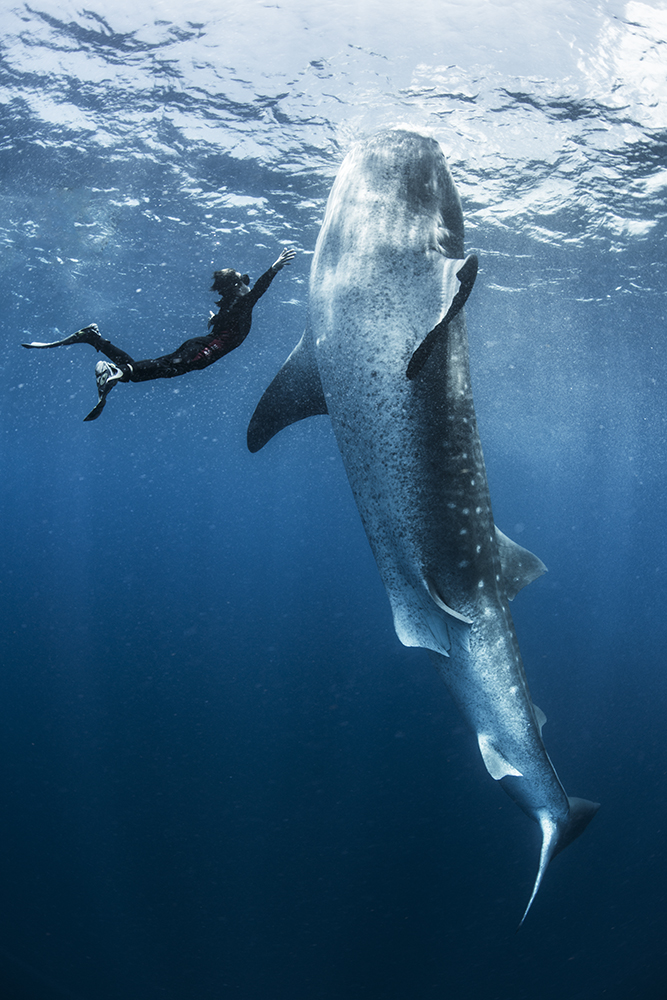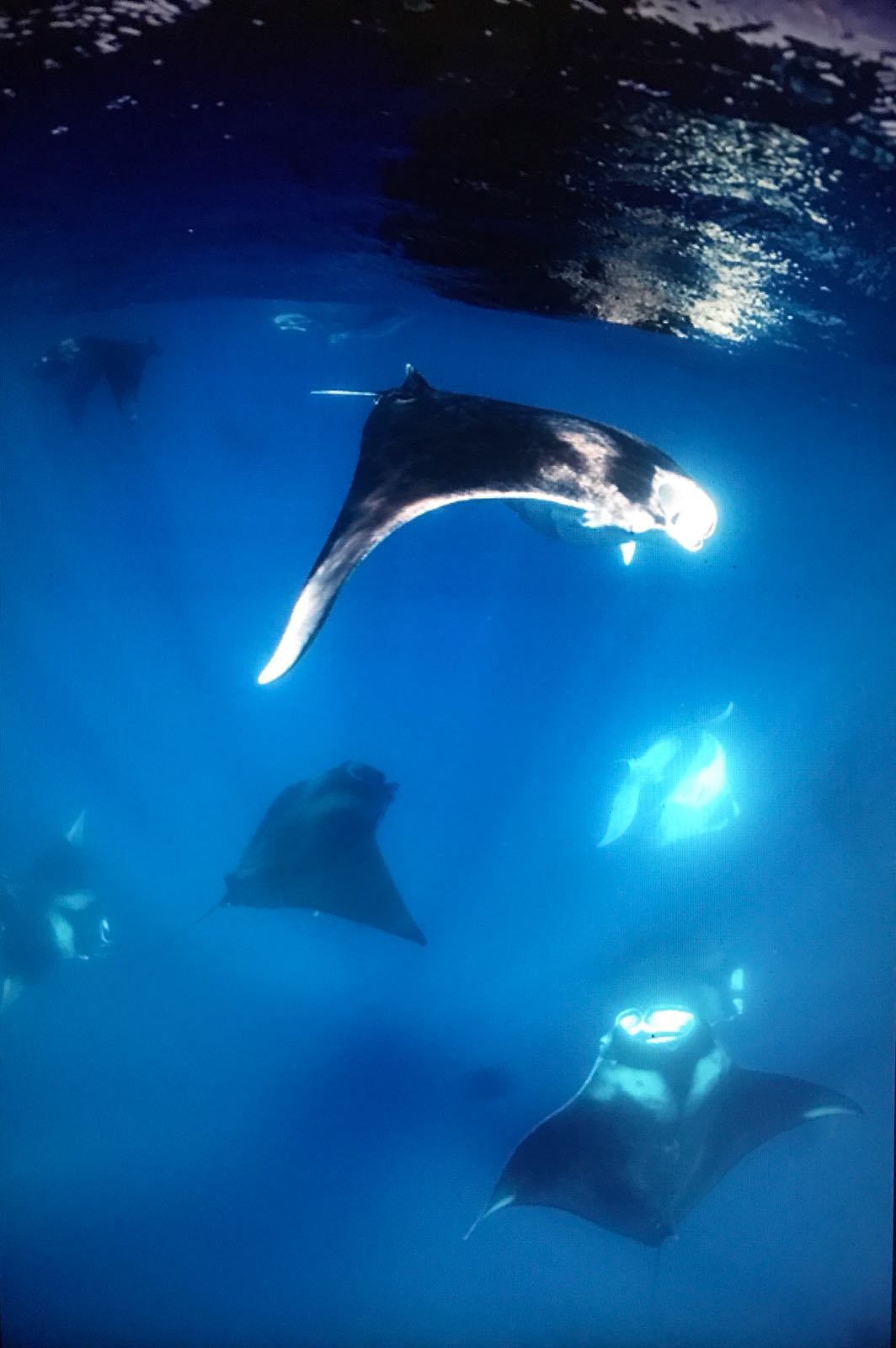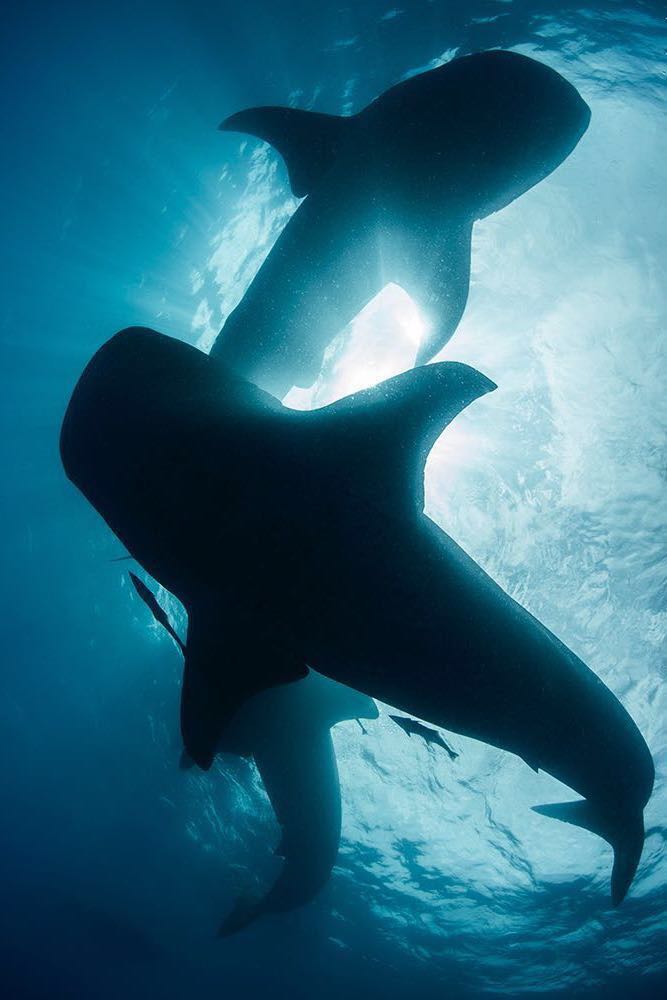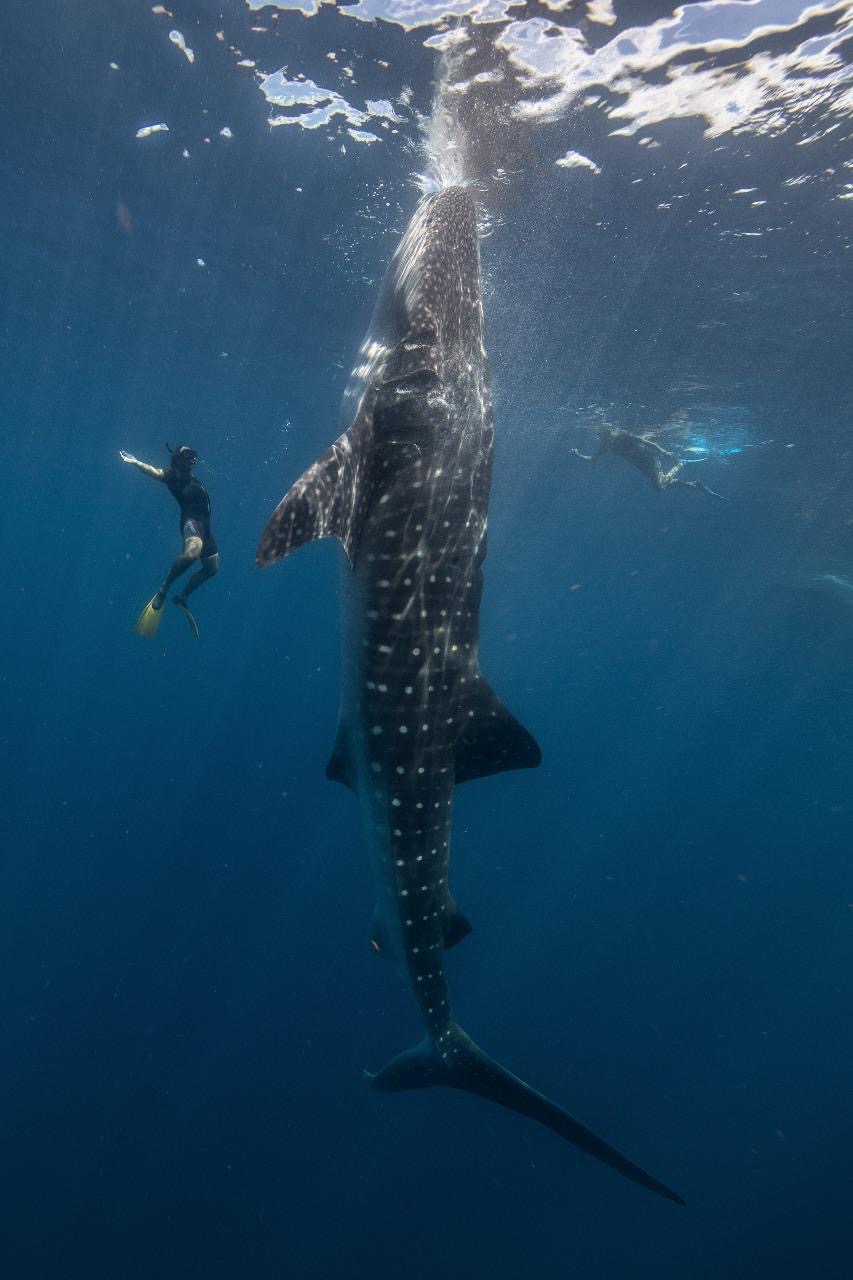Top Rated Tour in Cancun!
Cancun Whale Shark Tours
Swim and Snorkel with Whale Sharks in Cancun
Cancun Whale Shark Tour Options

Regular Private Boat (10 PX)

Small Private Boat (5 PX)

Single Spots on Shared Boat
“What an amazing experience !!!! we did the snorkeling with the whale shark on Sunday with Angel and Captain Ari, they went beyond their duties to provided us with a fantastic experience, 100% recommend. treat yourself with this awesome adventure with these guys that are so nice, helpful, gentle and funny.”
Carmen
ABOUT US
Over 25 Years of Whale Shark Experience:

Cancun Whale Shark Tours FAQ's
1. When is whale shark season in Cancun? The official whale shark season in Cancun runs from May 15th to September 16th. The peak months for sightings, offering the highest chances of seeing many whale sharks, are typically July and August.
2. How long does the tour last? Most whale shark tours are full-day excursions, typically lasting around 7-8 hours The boat ride to the whale shark feeding grounds usually takes about 1.5 hour each way but can be longer (up to 2 hours) early or late in the season if the sharks are further out.
3. What’s included in a whale shark tour
- Snorkeling equipment (mask, snorkel, fins, life jacket or wetsuit for shared trips)
- A professional, bilingual, certified guide.
- Food and beverages on board (water, soft drinks, sandwiches, fresh fruit, and italian sandwiches after the swim).
- Mandatory marine park/conservation fees
4. Do I need to be a strong swimmer? You don’t need to be an Olympic swimmer, but being comfortable in the water and having basic snorkeling skills is highly recommended. Life jackets are mandatory for everyone in the water on shared trips. Your guide will be with you at all times, providing support if needed.
5. How close can I get to the whale sharks? Can I touch them? No, you cannot touch, ride, or interfere with the whale sharks in any way. Mexican government regulations (and ethical guidelines) require swimmers to maintain a minimum distance, typically 2-3 meters (6-10 feet), from the whale shark’s body and at least 3 meters (10 feet) from its tail. These rules are strictly enforced to protect the animals and ensure a safe, respectful encounter.
6. How many people swim with the whale shark at one time? Regulations generally limit the number of swimmers in the water at any given time to two people per whale shark, accompanied by a certified guide. This helps minimize disturbance to the whale sharks and ensures a more intimate experience for guests.
7. Is it safe to swim with whale sharks? Are they dangerous? Yes, it is very safe! Despite their “shark” name, whale sharks are gentle giants and filter feeders, primarily eating plankton and small fish. They pose absolutely no threat to humans. Your safety is also paramount, with experienced guides, mandatory life jackets, and strict adherence to safety protocols.
Tour operators monitor weather and sea conditions, and tours will be canceled if conditions are unsafe.
8. Is whale shark tourism ethical? The whale shark tours in Cancun are highly regulated by the Mexican government (CONANP – National Commission of Protected Natural Areas) within a designated Biosphere Reserve. Operators must follow strict guidelines to ensure the well-being of the sharks, such as:
- Maintaining distance from the sharks.
- Limiting the number of boats and swimmers.
- Prohibiting touching or feeding.
- Mandatory use of biodegradable sunscreen or rash guards. While over-tourism can always be a concern, choosing a reputable and ethical tour operator who prioritizes conservation and adheres to all regulations helps ensure the sustainability of these incredible encounters.
9. What should I bring on the tour?
- Swimsuit (wear it under your clothes)
- Towel
- Hat or cap
- Sunglasses
- Biodegradable sunscreen or long-sleeve rash guard/swim shirt (essential for sun protection and to protect the marine environment; regular sunscreen is usually prohibited).
- Change of clothes
- Waterproof camera (GoPro is ideal) or inquire about professional photo/video services.
- Motion sickness medication if you are prone to seasickness (take it well before departure).
10. Can pregnant women or young children participate? Pregnant women are generally not permitted on whale shark tours due to safety regulations and the potential for rough seas. The minimum age for children is 6 years old.
11. What if we don’t see any whale sharks? While sighting rates are very high during peak season, whale sharks are wild animals, and sightings are not 100% guaranteed. Reputable operators cannot guarantee sightings. Most companies do not offer refunds if no whale sharks are sighted, as the tour still involves transportation, guide services, and other inclusions.
12. Why are wetsuits sometimes not allowed as a primary floating device? Some regulations now specify that life jackets are mandatory and wetsuits are not sufficient as the primary floating device. This ensures consistent safety and buoyancy for all participants.
13. Do you provide motion sickness medication? Most tour operators do not provide medication for seasickness. It’s highly recommended to bring and take your own motion sickness medication (like Dramamine) at least an hour before boarding the boat, especially if you are susceptible to seasickness.
